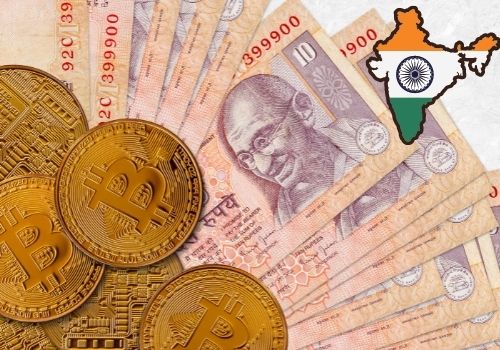The 5 points framework to regulate cryptocurrencies in India

Indian banks and other players have taken a cautious approach in the face of regulatory uncertainties surrounding the country’s cryptocurrency business. Many Indian institutions, for example, continued to cite a Reserve Bank of India circular prohibiting banks from dealing in cryptocurrency after the Supreme Court’s March 2020 order abolishing the ban. This forced the country’s central bank to clarify this week regarding the circular’s legitimacy in light of the Supreme Court’s ruling.
According to Rameesh Kailasam, CEO of IndiaTech.org, which was founded by and represents India’s consumer internet startups, unicorns, and investors, a clearly articulated regulatory framework governing crypto exchanges, startups, and assets in the country is crucial for the fast-growing cryptocurrency industry to realize its potential in India. IndiaTech.org recently released a whitepaper proposing a five-point legislative framework to regulate the cryptocurrency business in India, which would assist limit the risks connected with space while also encouraging growth and innovation.
“There are well over 300 blockchain businesses around the world, but Indian entrepreneurs barely get 0.2 percent of the pie in terms of global investments,” Rameesh explains. Regulators will play catch-up whenever there is innovation, but they should not discourage innovation and investment in space.”
Rameesh believes that India can capitalize on the crypto industry’s potential with the correct approach and become a hub for blockchain innovation, which may have a comparable influence on the Indian economy as IT services and the Internet economy. But, to do so, the first step is to accept cryptocurrencies and identify them as digital assets rather than currency. Other steps, he says, include establishing self-regulation or a code of conduct for the sector and checks and balances surrounding traceability and disclosures, tax regulations, a method to register local crypto exchanges, and self-regulation or a code of conduct for the industry.
Also, read – How Blockchain Can Transform Marketing and Advertising?
During the interview, Rameesh described the five-point framework for defining, introducing, enabling, allowing, and encouraging the industry’s necessary checks and balances to increase crypto acceptance and blockchain innovation in the country.
The proposals in the five-point framework are as follows:
Taxation
To stimulate rapid growth and drive innovation, enable taxation (direct and indirect) to treat crypto assets similarly to other current assets, and cease financial assistance to crypto companies via tax credits and other incentives. “Crypto as a current asset, depending on the type of the firm holding it, can be held for a short or long time, and gains taxed accordingly,” Rameesh said, arguing that FEMA standards should be applied and that persons possessing crypto-assets should be required to disclose their holdings.
Self-Regulation
Encourage self-regulation, such as a code of conduct and regulatory framework, in line with the government’s key financial stability and consumer protection goals.
Rameesh proposed that the Indian government establish principle-based self-regulatory principles for the crypto industry to follow until more legislation is introduced. This self-regulatory concept might subsequently be implemented by a government-recognized agency, ensuring accountability and openness.
Ownership
Define and recognize crypto assets as digital assets rather than currency, and create a framework in India for establishing local crypto exchanges. According to IndiaTech.Org, India should consider allowing only Indian founders to run such enterprises. “By doing so, India will save billions of dollars in revenue that would otherwise have to be paid in foreign exchange. We advocate that Indian founders/entities hold at least 26 percent of crypto exchanges, similar to the approach in the banking sector in India,” the whitepaper stated.
Compliance and Reporting
To counter suspicious activity, provide sufficient checks and balances through well-defined reporting methods and accounting standards. Customer verification, updating accounting standards, designating cryptocurrencies as current assets on company balance sheets, implementing methods for reporting suspicious transactions, assuring traceability, and bringing crypto under anti-money laundering legislation are among them.
Payment and Token Concerns
Allow businesses to use cryptocurrency in novel ways and place particular protections to protect regular investors from fraud. Individuals or enterprises should treat trades in products or services against any crypto-assets as “barters” rather than cash transactions, according to IndiaTech.org.
The whitepaper stated, “It might be voluntary, but enterprises should be free to develop their infrastructure using crypto to make present payment systems more efficient.” Alternatively, India may consider outlawing cryptocurrency as a payment method at first, allowing only holding and trading. Furthermore, depending on their use case, tokens might be classed as securities, commodities, or neither, and exchanges must conduct due diligence on tokens listed.
The Need of the Hour is Clarity in Regulatory
The proposals made by IndiaTech.Org for regulating the cryptocurrency business in India come at a time when authorities are catching up to blockchain innovation and crypto acceptance. Banks are not allowed to trade with “virtual currencies” or give services to anyone dealing with them, according to a 2018 RBI circular. In March 2020, the Supreme Court overturned the circular.
Despite the ruling, banks have continued to use the 2018 circular to cut ties with crypto exchanges and discourage customers from utilizing their services to trade in cryptocurrency. The cryptocurrency industry hailed the RBI statement as an endorsement of bank accounts for such transactions and a step in the right direction for the industry’s future.




























































